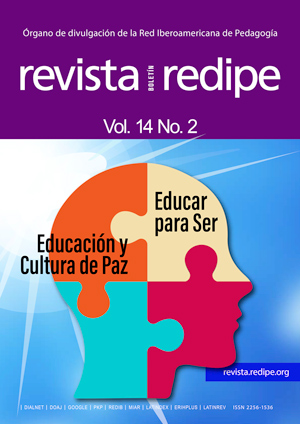The role of technology in the quality of education in vulnerable Afro-Colombian regions
Main Article Content
Keywords
Technology, Technological skills, Connectivity, Teacher training, Educational quality
Abstract
The article determines the impact of technology on educational quality in vulnerable educational institutions in Chocó. The paradigm is sociocritical, mixed approach and descriptive. The population is made up of students, teachers, officials of the education secretariats and researchers. The methods include: bibliographic review, historical-logical, analytical-synthetic, inductive-deductive, surveys in Google Forms and statistics.
The results show that the technological infrastructure is deficient, the materials with the greatest presence are: computers, televisions and tablets. The technological tools and applications are traditional and artificial intelligence. The internet connection is scarce; the level of knowledge of the devices and the internet is medium; the most used social networks are: WhatsApp, Facebook and YouTube; and the use of technological devices by parents to support the development of their children’s schoolwork is very low.
It is concluded that technological infrastructure, the state of technological materials, quality of the Internet connection and technological skills are variables that affect quality at the basic and secondary education levels.
References
Almazán, A. (2020). Covid-19: ¿Punto Sin Retorno de la Digitalización de la Educación? Revista Internacional de Educación para la Justicia Social, 9(3), 1-4.
Arabit-García, J., García-Tudela, P. A., & Prendes-Espinosa, M. P. (2021). Uso de tecnologías avanzadas para la educación científica. Revista Iberoamericana de Educación, 87(1), 173-194. https://rieoei.org/RIE/article/ view/4591/4253
Blanco, N., & Pirela, J. (2022). La complementariedad metodológica: Estrategia de integración de enfoques en la investigación social. Espacios Públicos, 18(45). Consultado de https:// espaciospublicos.uaemex.mx/article/ view/19296.
Castillo, D. (2020). Las TIC en los procesos de enseñanza-aprendizaje desarrollados por maestros tutores de Educación Primaria en la Región de Murcia. RIITE Revista Interuniversitaria de Investigación en Tecnología Educativa, 9, 1-14.
Cabrera, J. M., & Sánchez, I. I. (2021, December). Videojuegos en la escuela primaria con STEAM–caso KODU una estrategia didáctica. In Memorias de Congresos UTP (pp. 29-39). https:// revistas.utp.ac.pa/index.php/memoutp/ article/view/3315/4029
CEPAL/OEI (2020). Educación, juventud y trabajo. Habilidades y competencias necesarias en un contexto cambiante. Documentos de Proyectos (LC/ TS.2020/116).
Grbich, C. (2007). Qualitative data analysis: An introduction. London: Sage.
Guerra, L. S. (2022). Del abandono a la permanencia escolar en Secundaria. Profesorado, Revista de Currículum y Formación del Profesorado, 26(1), 213-233.
Guerrero-Bejarano, M. A. (2016). La investigación cualitativa. INNOVA, Research Journal, 1(2), 1-9. doi: https://doi.org/10.33890/ innova.v1.n2.2016.7
Hernández, R. & Mendoza, C. (2018). Metodología de la investigación: Las rutas cuantitativa, cualitativa y mixta. México: McGraw Hill.
Herrera-Rodríguez, J. I., Guevara-Fernández, G. E., & Munster de la Rosa, H. (2015). Los diseños y estrategias para los estudios cualitativos:Un acercamiento teóricometodológico. Gaceta Médica Espirituana. 17(2), 120-134. Recuperado de http://scielo.sld.cu/scielo. php?script=sci_arttext&pid=S1608- 89212015000200013&lng=es.
Lederman, D. (2020) Will Shift to Remote Teaching Be Boon or Bane for Online Learning. In-side Higher.
Ley, N. V., Morocho, M. E., & Espinoza, E. E. (2021). La tecnología educativa para enseñanza de la geografía. Conrado, 17(82), 465-472. http://scielo.sld.cu/ scielo.php?script=sci_arttext&pid =S1990-86442021000500465
Lloyd, M. (2020) Desigualdades educativas y la brecha digital en tiempos de Covid19en Educación y pandemia. Una visión académica. Instituto de Investigaciones sobre la Universidad y la Educación. México, UNAM.
Luthra, P. (2020) Una ocasión para reinventar la escuela. Correo de la UNESCO: un solo mundo, voces múltiples.
Mendoza, M. (2014). El teléfono celular como mediador en el proceso de enseñanza-aprendizaje. Omnia, 20(3), 9-22.
Ortega, A. O. (2018). Enfoques de investigación. Métodos para el diseño urbano–Arquitectónico. https://www. researchgate.net/profile/AlfredoOtero-Ortega/publication/326905435_ ENFOQUES_DE_INVESTIGACION/ links/5b6b7f9992851ca650526dfd/ ENFOQUES-DE-INVESTIGACION.pdf



